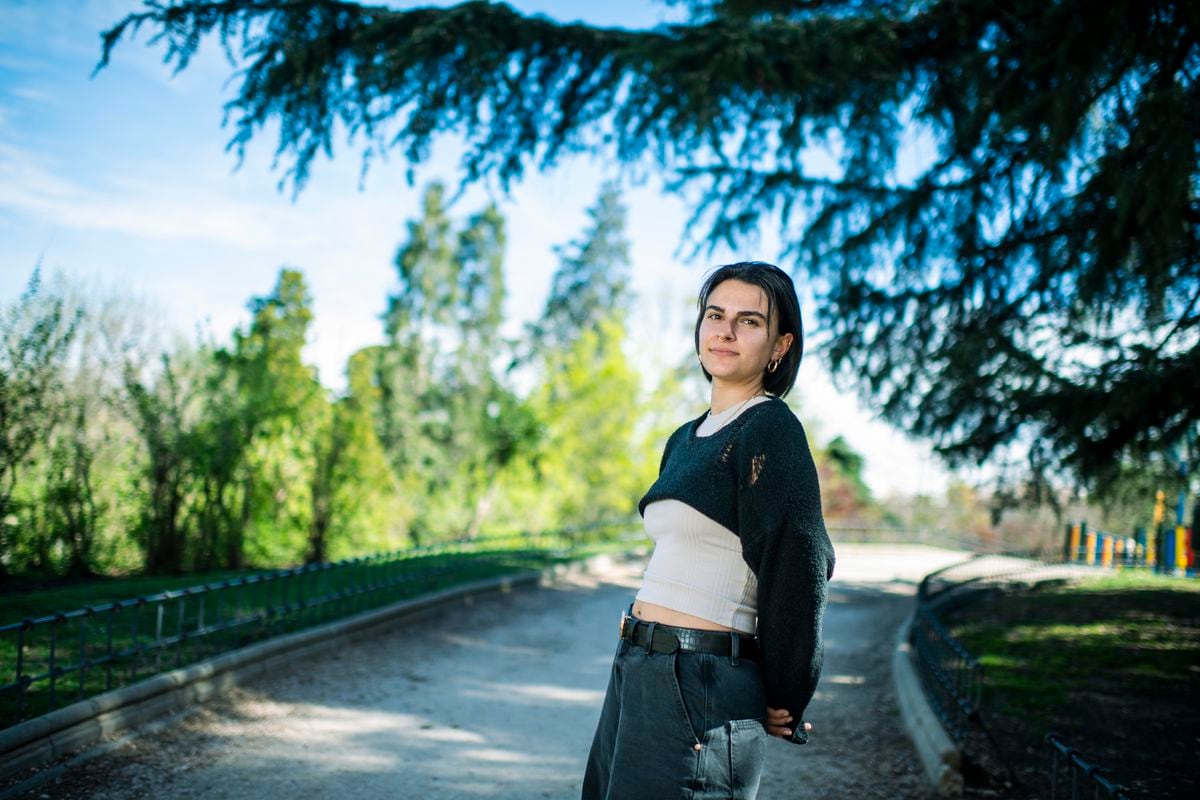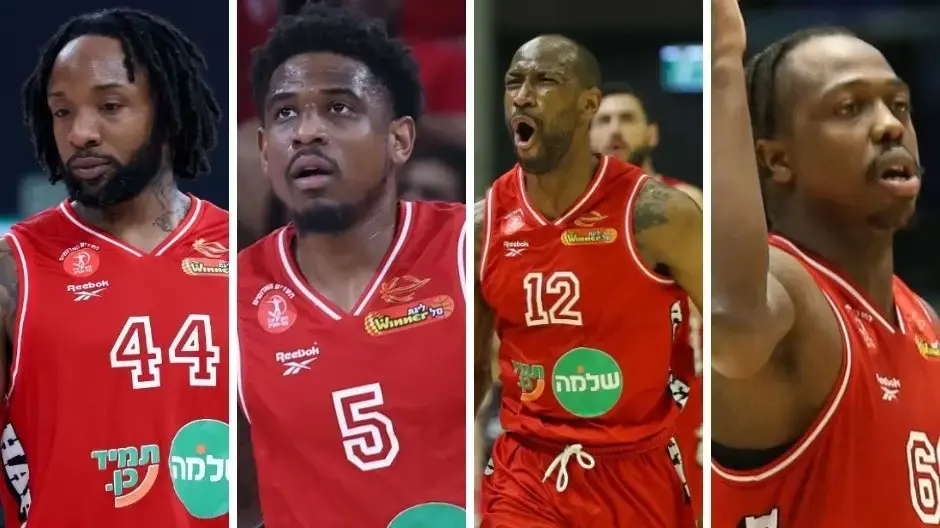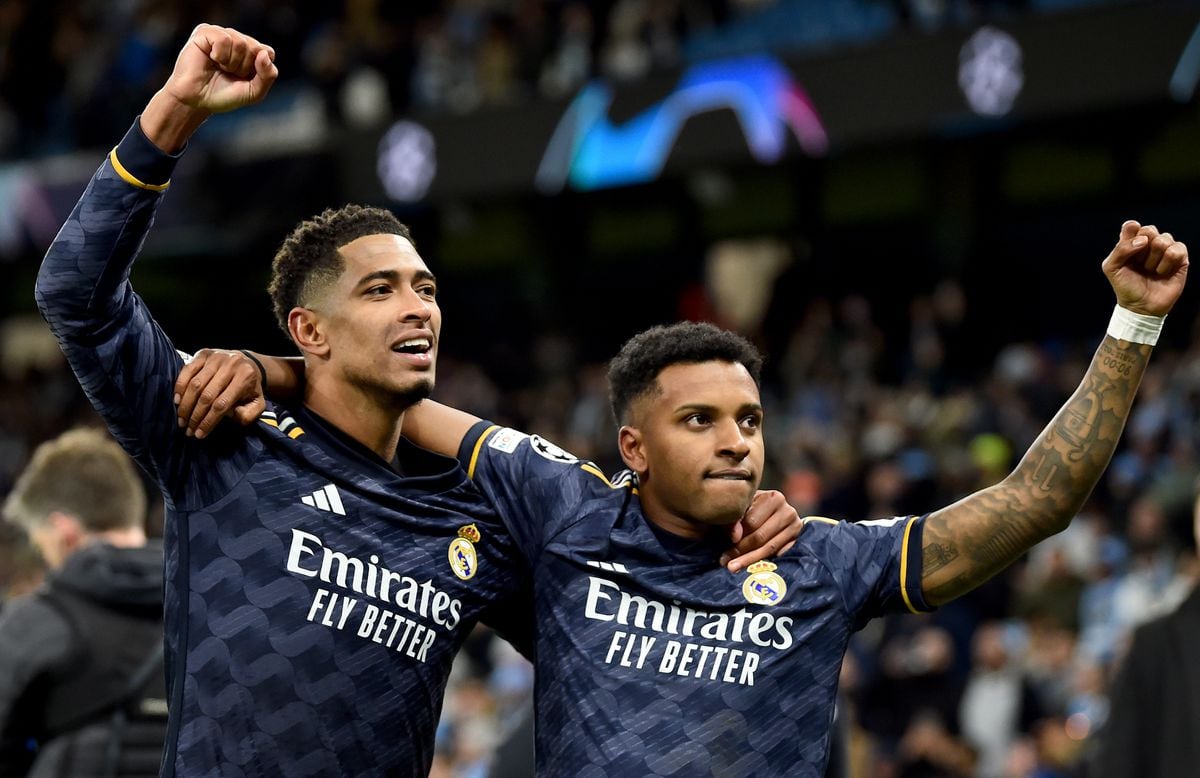At the age of 17, she won a World Cup and was noted as one of the best young soccer players of the moment.
At 20, the Madrid CFF player announced that she was leaving him.
She ended up hating soccer.
She had demanded so much that her body and her head said enough.
Now, a year after hanging up her boots, Irene López Ruiz (Madrid, 21 years old) speaks openly about the importance of taking care of the mental health of athletes, young people who are usually overwhelmed by expectations, pressure and anxiety.
Ask.
He left football a year ago, how is his life now?
Answer.
Now I study and work as a tattoo artist.
I also do things on my own related to my studies: I do short films and photo shoots.
I study lighting, capture and treatment of the image and I would like to focus it towards the cinema;
Although I am also very interested in photography.
Q.
What a radical life change.
Do you feel strange?
R.
I feel very comfortable because everything I've done I've done because I really wanted to.
I was studying psychology, but I had the thorn of doing something more artistic.
While I was studying and playing soccer, for example, I signed up for painting classes.
I felt that I lacked time to do things that I liked.
When I started playing soccer it was a hobby, I enjoyed it every day;
but when it becomes professional, it doesn't stop being a job.
At that moment when there is a contract involved, a salary and expectations to meet, it is no longer the same.
As a child, my escape route was sports, soccer;
I had to find an escape route for my escape route.
Soccer required a lot of my time.
Not so much because I had to train for many hours, but because I came home and kept thinking about soccer.
Nor was she lucid in her studies.
She thought about soccer 24 hours a day.
That added to the problems of stress and frustration, because I did not feel comfortable, forced me to escape.
Q.
Now you give talks about sports and mental health.
R.
I disassociated myself from football, but I felt the need to explain what I have suffered, because I can surely help young people.
At 15 or 17 you don't realize things.
But when you're on an elite team you see a lot of attitudes that you already know is not going to do a girl any good.
I debuted at the age of 15 in the first division.
And many girls are debuting at those ages.
You tend to burn stages very quickly in football played by women.
And, in the end, your personal development goes from being with people your own age, a year older or younger, to suddenly being in a team with people who are 10 years older than you.
It is a very big difference that can become problematic.
For this reason, both the clubs and the Spanish team have to understand that you have to prepare the players, instill discipline in them from a young age.
I,
from 15 to 18 I was a crack and did and undid as I wanted.
But at 18, when I had to discipline myself, when they began to correct me technically, I couldn't tolerate frustration.
Q.
What do you talk about in your talks?
Q.
From stress management, how you can have negative feelings that you think are normal until you explode.
All these sensations must be taken into account from a young age.
Especially if you want to dedicate yourself to professional sports.
When I was 15 years old, they asked me and I answered that I wanted to be a footballer all my life.
So you also have to be prepared for when the story changes.
To say: this is no longer my thing.
At 18 I was already playing out of inertia.
Nobody asked me if I wanted to continue doing it.
Me neither.
I did what was expected of me.
Q.
When you announced your retirement, you said that you began to go to training and realized that you had an aversion to sports.
How did you experience that process?
R.
Things start to go wrong when you go to train without desire and that lasts for weeks, months.
We understand that there are bad days and better ones.
But I would arrive and I didn't even want to put on my boots;
I wanted to stay at home, think, do other things.
Q.
How do you get to that disconnection with something that you liked so much?
R.
I think it has to do with the
burnout
syndrome .
You end up burning.
Perhaps if she had treated that apathy before, if she had been able to turn it around... But when I realized that soccer was not my thing, she was already diagnosed with depression.
And that accumulation of emotions makes it very difficult to reverse the situation.
When you are in the hole you can no longer continue in the same direction.
You have to do something else and regain vitality.
I felt apathy for everything.
Q.
Did you feel physical discomfort?
A.
Yes. I had problems with the food.
I went to have an analysis done: I wasn't feeling well, I had gained weight and my eating routine hadn't changed much either.
I realized that my cortisol was through the roof.
It is the stress hormone.
I had been getting fat from everything in my head.
That also made it difficult for me to play soccer.
When I quit, I lost all those pounds without doing anything special.
For all this, I defend the importance of each athlete being able to count on a psychologist who attends them individually.
And if the club has to put it, let it do it.
Q.
Are there psychologists in the national team or in the clubs to help manage the pressure or anxiety that is so logical in the athlete's day-to-day?
R.
Now, what exists has more to do with the figure of the
coach
, who does group sessions.
That's fine, but it's not effective from a personal point of view.
To deal with the problems of each one, for the moment, there is still a very precarious system.
Going to the psychologist for public health is practically impossible, you cannot have regulated and quality appointments of more than 30 minutes.
Therefore, going to the psychologist is expensive.
And many footballers, usually in a precarious situation, cannot afford it.
It should be mandatory for each club to have a psychologist with whom they can do individual sessions.
Q.
"When you touch the sky from a young age, win a World Cup or a bronze boot, they don't give you a mattress for the day you have to get off that step," he said a year ago.
In his years as an elite athlete, did she teach him how to handle anxiety or pressure?
A.
No. Nobody.
You lean on your friends, but they are not the ones who have to help you.
Nobody had taught me to manage emotions.
I started going to therapy late.
And it was the psychologist who taught me.
This is a distance race, but at least now I'm aware of what I feel and what I don't feel.
Q.
You were in the Bronze Boot in the 2018 U-17 World Cup, the third top scorer in the tournament and "the brain of Spain", they said, how did you assimilate the expectations generated?
R.
I did not assimilate them.
I did it afterwards.
And my decline began, mental and football.
I never finished assuming it.
I feel like an anecdote.
When they remind me that I have a Bronze Boot, I laugh.
When I tell my classmates now that I've been a world champion, they're like: what are you doing here?
But that no longer fits into the life I have now.
Irene López poses after the interview.
INMA FLOWERS
Q.
Are you happy?
A.
Now, yes.
Completely.
Q.
Since you won the World Cup to now, the landscape for women in soccer has changed.
How much has it done, how much is left to go?
A.
It has changed a lot.
Professionalization has arrived, the collective agreement... The changes have been positive, although they are still a bit brief for what they should be, but they are on the way.
Soccer players have more and more voice.
And I think that it will gradually improve, as long as those involved all go together.
And there is no disparity of opinions regarding the rights that they should have yes or yes.
Q.
Do you understand the layout of the 15 players from the national team last summer?
A.
Yes. I can understand it.
A selection is many voices and the soccer players are part of those voices.
To achieve success and minimum objectives, they all have to go together.
And if at any time someone does not agree, the objectives and conditions must be renegotiated.
In a team one is nobody without the other.
There must be cohesion.
The more and better you take care of your footballers, the better performance they will give you.
Q.
Doesn't it make you a bit nostalgic to think about the World Cup this summer, how you could have been there?
A.
No. I am very happy with my life now.
I am where I want to be and I feel lucky for what I have experienced, also for the bad, because it has made me the person I am now.
Q.
Have you played soccer again?
R.
In summer I had a party with friends.
Q.
Do you play sports?
R.
No, but that is something that I have pending.
It's health.
And I miss it.
I miss that disconnect.
You can follow EL PAÍS Deportes on
and
, or sign up here to receive
our weekly newsletter
.
Subscribe to continue reading
Read without limits
Keep reading
I'm already a subscriber


/cloudfront-eu-central-1.images.arcpublishing.com/prisa/JFA2SLZ7WFEXLKEZWS2UNF3F6U.jpg)


/cloudfront-eu-central-1.images.arcpublishing.com/prisa/JJH5C6S7TBHRLHGLBUX6REYDFA.jpg)





